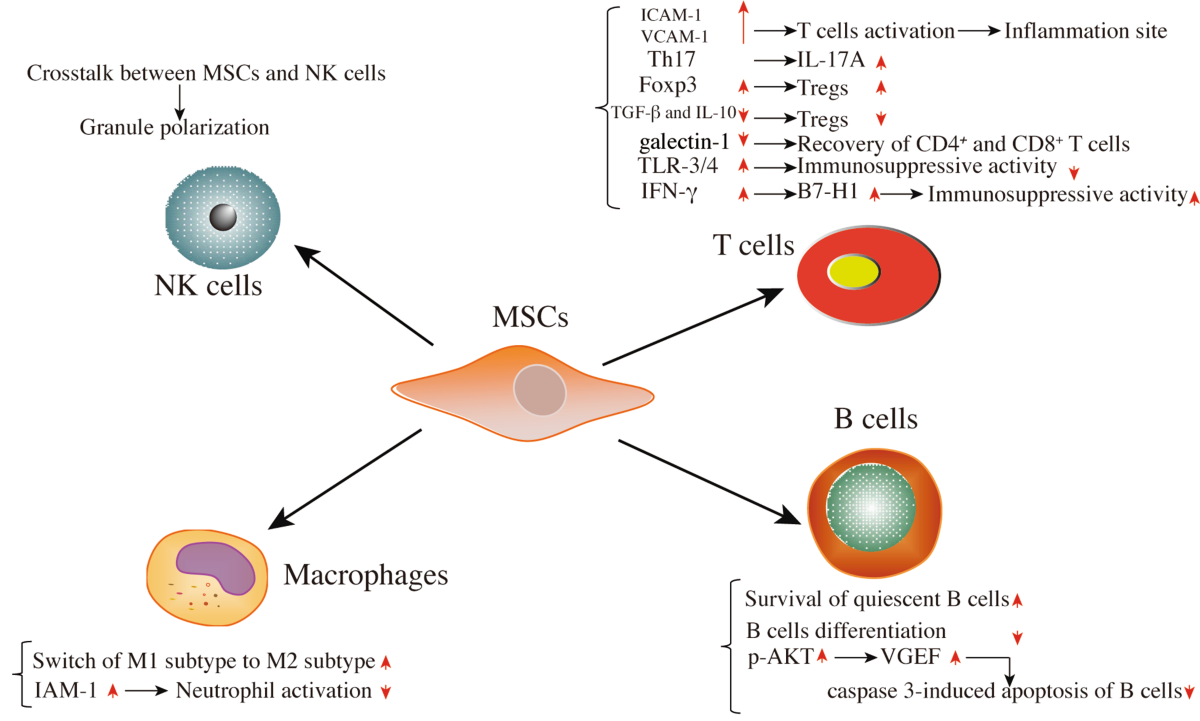Immunomodulatory properties of Cellular Therapy and Stem Cells 2

Immunomodulatory Properties of Cellular Therapy and Stem Cells
Immunomodulatory properties of Cellular Therapy and Stem Cells refer to the ability of certain cells, including stem and progenitor stem cells, to regulate the immune response. This capability is particularly important in the context of cellular therapy for major organ diseases such as brain, heart, lungs, kidneys, where inflammation can exacerbate damage and hinder recovery.
Key Points about Immunomodulatory Properties:
Definition:
Immunomodulatory properties involve the modulation of immune system activity, either enhancing or suppressing immune responses to promote healing and prevent further tissue damage.
Mechanisms of Action:
- Cytokine Secretion: Cellular Therapy and Stem Cells release various cytokines and growth factors that can influence immune cell behavior, promoting an anti-inflammatory environment conducive to tissue repair.
- Regulation of Immune Cell Activity: Progenitor stem cells can modulate the function of immune cells, such as T cells and macrophages, reducing excessive inflammation and promoting tissue homeostasis.
- Promotion of Tolerance: These cells can induce regulatory T cells (Tregs), which play a critical role in maintaining immune tolerance and preventing autoimmunity.
- Exosome-Mediated Communication: Stem cells release exosomes containing microRNAs and proteins that can alter the behavior of recipient immune cells, further contributing to an immunomodulatory effect.
Applications in Kidney Diseases:
- Chronic Kidney Disease (CKD): Immunomodulation helps reduce inflammation associated with CKD progression, potentially preserving kidney function.
- Acute Kidney Injury (AKI): By mitigating inflammatory responses, Cellular Therapy and Stem Cells can enhance recovery from AKI and improve renal outcomes.
- Glomerulonephritis: Immunomodulatory properties can help regulate the immune-mediated damage seen in glomerulonephritis, promoting healing.
- Lupus Nephritis: Stem cell therapies may alleviate renal inflammation associated with lupus by modulating the immune response.
How DrStemCellsThailand’s Anti-Aging and Regenerative Medicine Center Can Help
At DrStemCellsThailand‘s Anti-Aging and Regenerative Medicine Center of Thailand, we leverage the immunomodulatory properties of Cellular Therapy and Stem Cells through:
- Tailored Treatment Protocols: Our team designs personalized treatment plans that utilize stem cells with strong immunomodulatory capabilities to address specific organ-based conditions effectively.
- Comprehensive Evaluations: We conduct thorough assessments to understand each patient’s unique immunological profile, allowing us to optimize therapy for enhanced outcomes.
- Holistic Approach: In addition to cellular therapies, we integrate supportive treatments that promote overall health and well-being, ensuring a comprehensive care strategy.
Conclusion
The immunomodulatory properties of Cellular Therapy and Stem Cells play a crucial role in enhancing body’s major organ repair and regeneration. By regulating immune responses and promoting a favorable environment for healing, these therapies represent a promising avenue for treating various diseases. At DrStemCellsThailand’s Anti-Aging and Regenerative Medicine Center, we are committed to advancing these innovative therapies to improve patient outcomes in overall health.
Consult with Our Team of Experts Now!
For further reading on immunomodulatory properties of cellular therapy and their clinical significance, you can refer to the following sources:
- How Stem and Progenitor Cells Can Affect Renal Diseases
DOI: 10.3390/cells13171460 - Immunomodulation by Mesenchymal Stem Cells in Renal Disease
DOI: 10.1016/j.kint.2016.06.031 - The Role of Stem Cells in Kidney Regeneration
DOI: 10.1155/2020/595493















